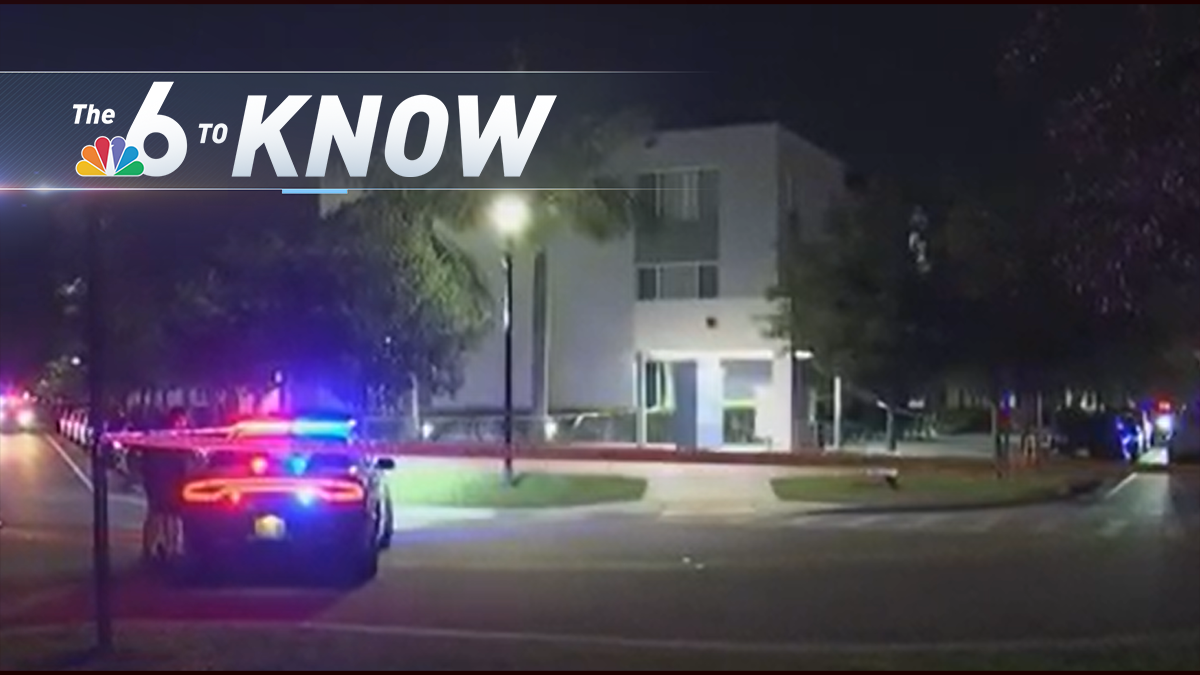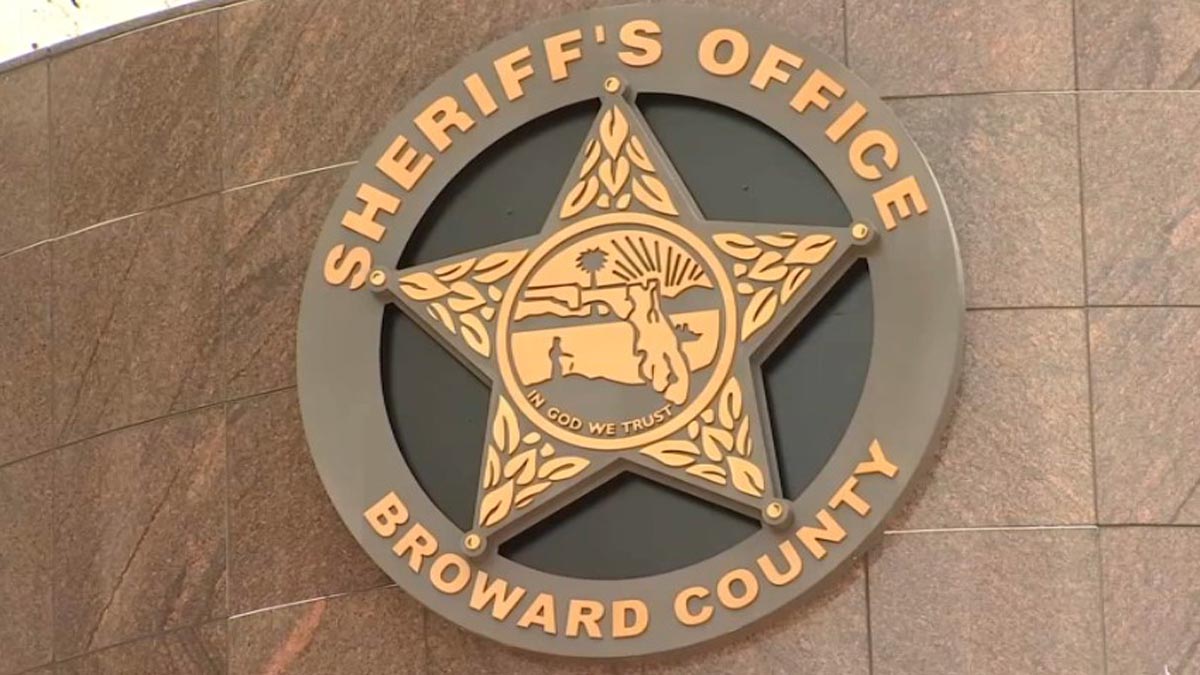Florida has paid lottery jackpots to international winners – people who bought their tickets online. While it’s not illegal for them to buy an online ticket, it can be trouble for the Florida stores that print out the tickets. NBC 6’s Tony Pipitone reports.
Aura Dominguez Canto got the call of her life last July while home in Panama.
“I’m happy to say you won $30 million last night,” the caller said.
“Oh my God. Oh my God,” Dominguez Canto repeated, adding she was in shock.
But when she got to Tallahassee in August to collect her $21 million cash payout, there was a problem.
She claimed in a lottery security affidavit she bought her ticket at a Panhandle package goods store where the winning ticket was printed.
But she had never set foot in the store.
She next wrote: “I asked my friend, Darian, to please buy it for me.” But when asked for Darian’s contact information she did not have it on her.
Local
Suspicious, lottery security started investigating the ticket sale before paying her the winnings.
An attorney Dominguez Canto used called lottery security later that evening to reveal she actually bought the ticket through TheLotter.com, an online lottery service.
Lottery security drove to the package store in Campbellton, where the owner admitted he used a laptop, printer and scanner provided by TheLotter.com to receive orders, print out play slips, and then scan images of the tickets printed from the retailer’s machines to send back to TheLotter.com office in Israel.
The next day “Darian” showed up at the lottery headquarters and introduced himself as Darian Stanford, an Oregon attorney who has represented TheLotter.com. He explained how TheLotter.com works and how he helped Dominguez Canto come into physical possession of the winning ticket printed out in the Panhandle.
Stanford told the state TheLotter.com allows players outside the United States to buy tickets from lotteries based in about 20 countries. It makes its profits by charging its customers more than the face value of the tickets – in some cases 50 percent more than the ticket would cost if bought in person, plus a service fee.
As for Dominguez Canto’s ticket, it took two weeks – as lottery security consulted law enforcement to determine if any criminal laws were broken – but eventually, lottery officials determined it was valid and Dominguez Canto was the rightful winner of the $30 million Florida Lotto jackpot ($21 million cash option).
The owner of the store that sold the ticket was not as lucky.
In November, the lottery terminated its retailer contract, telling the owner in a letter the revocation was necessary “to ensure the integrity, security, honesty or fairness” of the lottery. Terminals were removed from the Campbellton store and three others owned by the same corporation.
The NBC 6 Investigators found machines still humming at other outlets whose tickets wound up being sold through online lottery sites.
Florida law allows someone to enter a store and buy a ticket for someone else. (If it didn’t Powerball office pools would be a thing of the past.) But in Florida, you cannot buy a lottery ticket online.
The lottery says the decision to terminate a retailer sometimes depends on how far it can prove the owner or his employees go in assisting the online lottery outlets.
Consider, for example, the Pine Island Chevron in Davie.
It has sold three winning $1 million Powerball tickets that were ultimately purchased on TheLotter.com.
One of the winners was part of the record-setting $1.6 billion drawing in January 2016.
An analysis of lottery records by NBC 6 found that Chevron was the highest-grossing Powerball outlet in the state as the jackpot grew over the 10 week period leading up when the winning ticket was sold. The store sold more than $1 million in Powerball tickets during that time frame; the second-busiest outlet, City Discount less than a mile away in Cooper City, sold $435,000 during that period.
The day after Dominguez Canto showed up in Tallahassee, Florida Lottery security realized Pine Island Chevron had sold winning tickets that wound up with customers of TheLotter.com – so it sent an agent there to investigate.
“Past sales reports indicate they were previously using TheLotter.com to sell Florida Lottery tickets,” the investigator concluded. But, he added, there was no evidence the current owner is “engaged in any activity that would jeopardize his Florida Lottery contract at this time.”
The owner, Isaac Golan, told NBC 6 he has was unaware tickets printed there wound up being sold through online lottery services.
Asked why he was selling so many tickets during the Powerball frenzy of 2015-2016 – more than twice as much as anyone else in Florida, including high-volume stores near the Alabama border – he said, “Well, I’m a good businessman, I don’t know what to say.”
He also said he was never questioned by lottery security about how tickets printed in Davie wound up with three million-dollar winners from the United Kingdom, El Salvador and Australia who bought them through TheLotter.com.
Lottery security also erroneously noted Golan did not own the store when two of the tickets were sold in 2016. Golan said – and public records confirm -- he purchased it in 2013 – not 2017, as lottery security stated in its report.
Without any proof employees were currently actively in cahoots with an online lottery, the state continues to allow tickets to be sold at the Pine Island Chevron.
Not so in Hollywood, where Perfect Liquor and Wine had its lottery agreement terminated in 2017 after security found its tickets being sold on another online lottery site.
When security visited in February 2017, the manager admitted he would feed stacks of play slips into the terminal for a courier. The courier who left him with the play slips would pay him through a pre-paid debit card.
Lottery security seized the card and discovered $1.7 million had been deposited on the card over the previous three years.
That was enough for the lottery to yank that license, while allowing another store owned by the same company to continue selling tickets in Tamarac – as long as the manager from Hollywood does not work at the Tamarac location.
The only sure winner in the lottery is the state – which collects billions in revenues – and the retailers, who get 5 percent of sales as a commission. The Pine Island Chevron has been paid more than $600,000 in commission from 2013 through 2017, according to lottery records.
In a statement to NBC 6, the lottery said it “follows the law. Retailer’s contracts with the lottery include requirements and prohibitions that could prohibit doing business with courier services like TheLotter.com, depending on the courier service’s business model. However, there is no provision in Florida law prohibiting courier services generally.”
If the legislature proposes to change the law, the lottery said, “We will be happy to work with the Legislature on this issue.”



